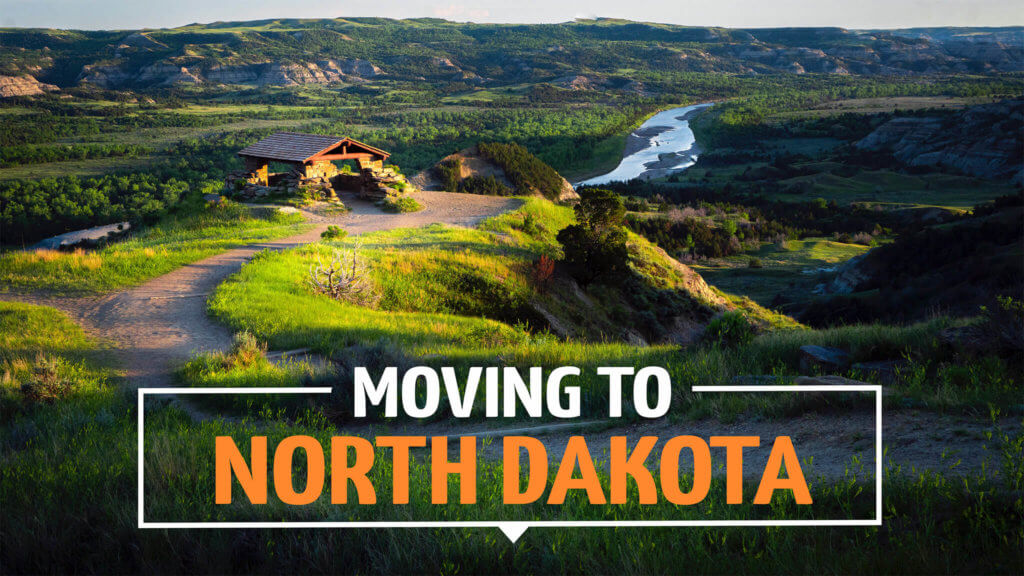North Dakota, as “Peaceful Garden State,” is one of the most sought-after estates in the country because of its stunning scenery, diverse wildlife, and welcoming residents. It is a fantastic place to call home if you’re looking for low crime, affordable housing, shorter commutes, and a low cost of living.
Ranching and farming occupy about 90% of North Dakota’s habitable territory, thus vast meadows and fresh air abound. However, the state’s actual title is Dakota, which means “friend” in Native American. If you’re unsure if North Dakota is the perfect place for you to relocate, our guide provides all the facts you need to make an informed choice.
You’ve already made up your mind? Great! It doesn’t have to be tough to relocate to North Dakota — it may be a simple process. Moving to North Dakota is simply possible if you know what you’re doing and how to get it done correctly.
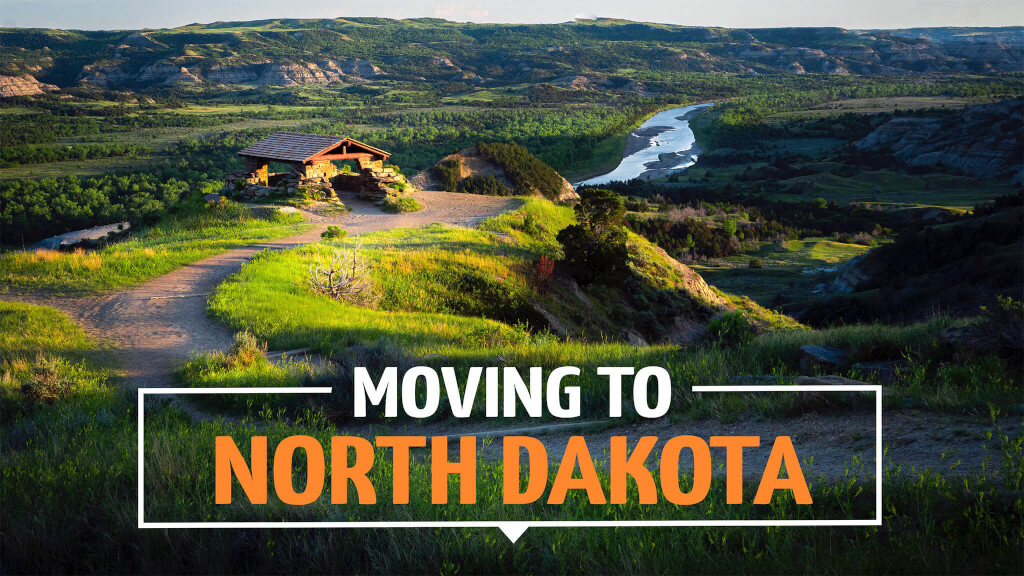
Is moving to North Dakota a good idea?
For those who dwell in North Dakota, there is a strong desire to retain the state’s natural splendor entirely to themselves. However, the state does experience all four seasons, contrary to what many people believe. Look at the following reasons that are for sure gonna make it worth moving to North Dakota if you’re looking for a new home.
- According to a recent Greatest States ranking, North Dakota offers the best quality of life. That may amaze you, but it makes sense to say the state’s gorgeous national parks, clean air, and a strong feeling of neighborhood.
- North Dakota has one of the lowest unemployment rates in the country and was placed No. 1 on a Top State list for income progress. So, you won’t struggle to get a job.
- North Dakota is known for its frigid, broad plains, but it also includes several communities that are pioneers in agriculture and aerial drone technology.
- It’s Very Tax-Friendly.
- Crisp, clear night in North Dakota.
Current Population of North Dakota
North Dakota is surrounded by Minnesota (east), Montana (west), South Dakota (south) and Canada (north). North Dakota’s population is 774,008 by 2022, ranking 47th in the country. Its land area is 70,761 square miles. Native Americans first inhabited North Dakota thousands of years ago, and the principal groups are Mandan, Sioux, Chippewa, Hidatsa, and Mandan, named after the Sioux who once lived there. Until 1889, North and South Dakota were one province. Dakota was titled after the local Dakota Sioux tribe.
[elementor-template id=”13257″]
Fun Facts about North Dakota
Every state has its own unique identity due to its unique characteristics. This “fly-by” state is no different. The state of North Dakota is home to immense inimitable facts, from which some are funny too.
Here are 15 interesting funny facts about North Dakota that you might find fascinating and might create curiosity within you about its possibility.
- Area-wise, North Dakota is the 19th hugest state but it’s the least populated one.
- North Dakota has a dozen of Nicknames.
- The first mosque in the US was built in North Dakota in 1929 in Ross town, Montreal.
- The first clothes dryer was invented in 1938 by J. Ross Moore.
- North Dakota is home to some hottest celebrities.
- It’s illegal to dance with a hat on in Fargo.
- It’s also illegal to take a nap while putting your shoes on.
- Playing Fireworks at Devils Lake in North Dakota is not allowed.
- David Henderson, a North Dakotan, invented the first camera in 1887 and named it by twisting the first four letters of “Dakota” and named it Kodak.
- A retired school teacher Garry Greff made the largest sculpture in the world “Geese in flight” and erected it on North Dakota’s highway. It’s 156′ long, 100′ high and weighs 75000 kgs.
- North Dakota broke the Guinness Book of World record on 17th February 2007 for making snow angels in a place.
- North Dakota is home to the world’s largest buffalo monument and the world’s largest Holstein Cow monument, Salem Sue. The buffalo monument is situated in Frontier village, Jamestown which is 46′ long, 26′ tall and weighs 60 tons whereas Salem Sue is 50′ long, 38′ tall, and weighs more than 6 tons.
- North Dakota’s most popular event, The Potato Bowl is a record-setter event that sets a new record every year by serving potato dishes.
- The state grows the most sunflowers and is one of the major exports in the world.
- It is one of the least-visited states in the US.
Cost of Moving to North Dakota
If you are considering moving to North Dakota, you should compare the relocation costs offered by several moving companies. Moving is not cheap; in fact, it is extremely costly. The entire cost will depend on the movers you hire and the items you own. Moving a piano to North Dakota, for example, will necessitate specialized movers. Thus, the distance, amount of things, and kind of assets all impact the total moving cost. The estimated relocation costs to North Dakota are listed below to help you budget.

| To / from | Cost ($) |
| New York to North Dakota | $4,710 |
| LA to North Dakota | $4, 873 |
| Chicago to North Dakota | $3,429 |
| Boston to North Dakota | $4,580 |
| Lousiana to North Dakota | $4,541 |
| Biddeford to North Dakota | $4,538 |
Looking for inexpensive movers in North Dakota? We’ve helped hundreds of folks relocate cross-country for exciting challenges and life chapters. Moving forward is thrilling, but getting all of your possessions to your fresh start is not. The reality of moving sets in and the enthusiasm may fade. To keep that spirit alive, A1 Auto Transport will handle your move from start to end. Hiring a moving company might be expensive. The sum includes the weight of your belongings, the distance travelled, and any extra services required. Get quotations from a few firms. You can get one from most.
Living in North Dakota
If you decide to relocate to North Dakota consider the cost of living there. To estimate future monthly and annual living expenses, potential movers might use this online calculator. Taxes, healthcare, and childcare are just a few examples of critical expenses that can help it do.
Cost of living in North Dakota
North Dakota has a $1507 cost of living, which is 1.18 times lower than the US median. North Dakota was voted the 48th most expensive and 48th greatest state to live in. Among different cities in North Dakota, living in Fargo, North Dakota offers residents an urban feel and most residents rent their homes. Discover North Dakota’s top cities to live in from the following chart!
| City name | Single/Family | Rent & Utilities | Food | Transport | Without rent | Total with rent |
| Fargo, ND | One person | $850 | $471 | $40.4 | $674 | $1524 |
| Family of 4 | $1126 | $1227 | $109 | $2182 | $3309 | |
| Bismarck, ND | One person | $705 | $459 | $60.4 | $680 | $1385 |
| Family of 4 | $1197 | $1211 | $172 | $2249 | $3446 | |
| Grand Forks, ND | One person | $871 | $543 | $34.7 | $710 | $1581 |
| Family of 4 | $1454 | $1412 | $93.5 | $2222 | $3677 | |
| Minot, ND | One person | $507 | $475 | $39.8 | $650 | $1157 |
| Family of 4 | $1350 | $1249 | $109 | $1969 | $3319 | |
| West Fargo, ND | One person | $1104 | $493 | $53.2 | $681 | $1785 |
| Family of 4 | $1844 | $1284 | $143 | $2229 | $4073 | |
| Mandan, ND | One person | $1098 | $495 | $53 | $683 | $1781 |
| Family of 4 | $1847 | $1289 | $142 | $2231 | $4078 | |
| Williston, ND | One person | $1097 | $485 | $47.1 | $676 | $1772 |
| Family of 4 | $2010 | $1272 | $125 | $2186 | $4196 |
Living in North Dakota pros and cons
In addition to consistently high rankings for sustainability and contentment, the state’s low-income tax rate and some of the state’s quickest cities make North Dakota an ideal place to call home. Living in North Dakota has some pros and cons which are given below, read them carefully!
| Pros | Cons |
| North Dakota is one of the greatest states in the US when it comes to general happiness, society, and nature. | Ready for -40°F? If you’re from a mild climate, brace yourself. Winters are particularly harsh here. |
| Taxes are very low, only 2.9% of income is taxed at the maximum. Out of pocket expenses like rent and mortgage are also modest. | North Dakota has odd laws, too. For example, an elk cannot be kept in a sandbox. In Waverly, a pony cannot sleep in a bathtub. |
| Unemployment is low in North Dakota. | North Dakota has a housing deficit. |
| Optimal road and traffic flow. | Adverse weather condition |
| Lots of food and drink options. | North Dakota has minor cities. |
| North Dakota has lots of open areas. | North Dakota’s diversity is limited. |
| Great education system | You’ll just have to deal with wild animals. |
| North Dakota’s cost of living is modest. | North Dakota has bugs. |
| Property prices are reasonable. | Windest state |
| Fast-growing cities and Some North Dakotans love sports. | hot humid summers |
| Wide economic opportunities | Super silence in North Dakota |
Is North Dakota a good state to live in?
Beautiful scenery, stunning parks, and wildlife sanctuaries, friendly people, a healthy environment, a lot of job opportunities, and a strong sense of sorority- North Dakota has it all. This legendary state has the highest living quality in the nation with less population, imposing less tax, less pollution, fewer crime rates, and more making it a good state to live in.
How much do you need to make to live in North Dakota?
According to the living wage calculator, an individual needs to earn an average of $7391 per month to live comfortably in North Dakota.
The living wage that an individual of North Dakota needs to earn for his/herself and their family is shown in the hourly rate. The table below provides information on individuals with single or 2 working persons and 0 to 2 children.
Depending on the number of family members an individual has, the minimum age of the state is equal for all individuals. Whereas, the poverty rate and living wage reflect an individual’s gross annual income and standard earning wage respectively..
| Types of wages | Single Individual with 0 child | Single Individual with 1-3 children | 2 individuals (1 working) 0 child | 2 individuals (1 working) 1-3 children | 2 individuals (both working) 0 child | 2 individuals (both working) 1-3 children |
| Living wage | $13 | $27-$45 | $22 | $26-$32 | $11 | $15-$23 |
| Poverty wage | $6 | $8-$13 | $10.5 | $10.5-15 | $4.5 | $5-7.4 |
| Minimum wage | $7.25 | $7.25 | $7.25 | $7.25 | $7.25 | $7.25 |
Is it expensive to live in North Dakota?
The cost of living in North Dakota is less expensive than the United States average which is 89.9. According to the information from the bureau of economic analysis, the cost of goods and services in North Dakota is 9.4% less than the national average. The state has the 16th lowest cost of living overall as compared with other US states.
A cost of living index of North Dakota as compared to the United States is stated below. The value of more than 100 means North Dakota is more expensive and vice versa.
| Cost of living | North Dakota | United States |
| Grocery | 95.1 | 100 |
| Health | 92.4 | 100 |
| Housing | 88.5 | 100 |
| Utilities | 89.4 | 100 |
| Transportation | 74.4 | 100 |
| Overall | 89.9 | 100 |
| Others | 103.3 | 100 |
[elementor-template id=”13247″]
North Dakota Taxes
As in any US state, North Dakota’s tax structure is complex and complicated. Knowing the principles is the very first step in understanding North Dakota’s tax law. What is North Dakota’s ranking? The following tables show North Dakota’s income, business, sales, and property tax rates, ranks, and metrics. Click the tabs to learn more!

| Individual Taxes | Tax rate | Business Taxes | Tax rate | Sales Taxes | Tax rate | Property Taxes | Tax rate |
| The top individual income tax rate | 2.90% | The top corporate income tax rate | 4.31% | State sales tax rate | 5.00% Rank- 33 | Property taxes paid as a percentage of owner-occupied housing value | 0.95% Rank- 24 |
| State and local individual income tax per capita | $423 Rank-41 | State business tax climate index ranking | 16 | Average local state sales tax rate | 1.94% | State and local property tax per capita | $1654 Rank- 15 |
| State and local tax burden | 9.0% Rank-33 | Combined state and average local state sales tax rate | 6.94% Rank- 28 |
What items are exempt from sales tax in North Dakota?
The items that are exempt from sense tax in North Dakota are clothing, industrial equipment, medical devices, groceries, prescribed medicines, and gasoline.
Is North Dakota a tax free state?
North Dakota imposes sales tax on individuals’ total taxable income of about 8.5%. other than that it allows its taxpayers to keep out a part of their income from their total taxable income towards the social security benefits of the state.
Are property taxes high in North Dakota?
The property taxes in North Dakota is slightly less than the national average of 1.07% which is 0.99%. The property tax rate is considerably much lower than the rates in South Dakota which are 1.22%.
Is North Dakota a tax friendly state?
North Dakota is a tax-friendly state, not only for taxpayers but also for retirees. The income tax, property tax, sales tax, and estate tax rates in North Dakota are quite low.
How to Get Residency in North Dakota
Moving to North Dakota is a significant step. Relocating across the country or simply a few regions can be difficult and daunting. We hope this post has helped clarify some aspects of life in North Dakota for both you and your family!
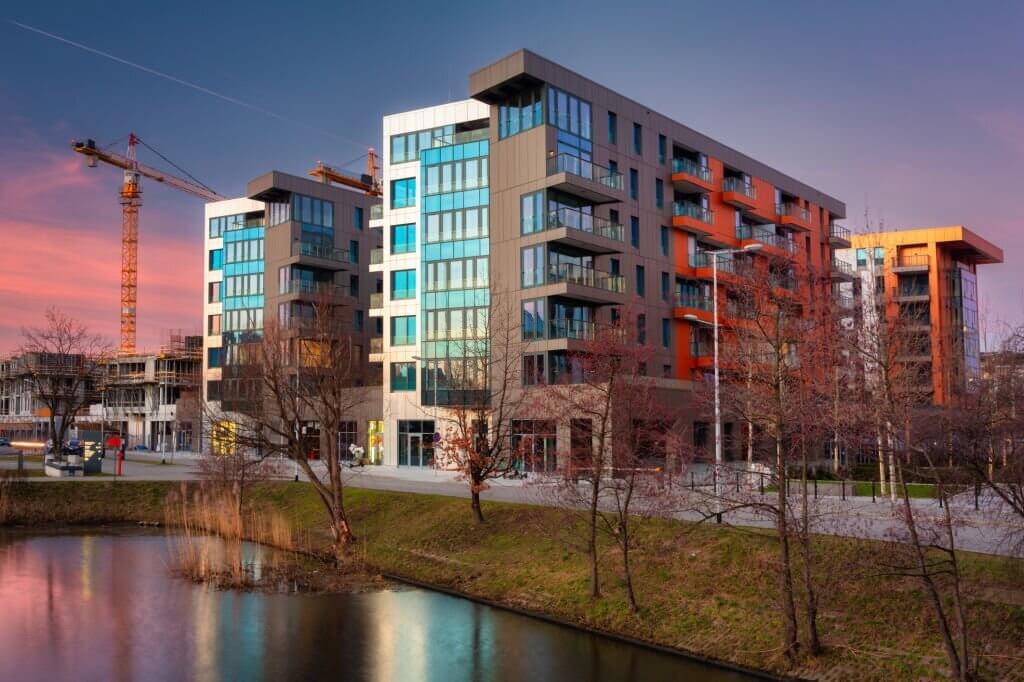
North Dakota Residency Requirements
Generally, to establish residency in North Dakota you must purchase or rent a home, have a job in North Dakota, a have North Dakota voter registration card, own a North Dakota-based business, a primary or secondary school-aged child in North Dakota. Anything you do to show that you want to stay in North Dakota counts as proof of permanent residency. North Dakota considers you a resident if you spend more than 183 days or 6 months in the state in a year. In addition to the qualifications listed above, you’ll often need:
- Your North Dakota ID.
- To have lived there for a year.
- Have financial freedom.
However, institutional requirements differ. After settling in North Dakota, you may usually take the following big steps right away, such as getting a license and registering your car.
North Dakota residency laws
As in the rest of the US, North Dakota law gives a broad concept of residency. In some cases, North Dakota law defines residency more narrowly. It’s important to note that terminology like “legal residence” and “domicile” are not often utilized interchangeably in law. The following are general rules in US statutes and judicial decisions:
- In general, “domicil” means “residence” and “desire to remain. Domicil consists of two parts: actual residence and commitment to make a real settlement in a jurisdiction.
- Every citizen must have a domicil at all times. A person can only have one domicil at a time, even if they have one or more physical houses.
How do you become a resident of North Dakota?
To become a resident of North Dakota you need to:
- Get a job within North Dakota.
- Become a registered voter in North Dakota.
- Have a local business in North Dakota.
- Rent or buy an apartment or house in North Dakota.
- Send your children to attend primary or secondary school in North Dakota.
Anything from the above points demonstrates that you have already started to establish yourself in the state as a permanent resident.
How long does it take to establish North Dakota residency?
To acquire not Dakota residency a person needs to leave there for 3 months unless being an armed force member, non-resident student, or a foreigner.
How long before you have to claim residency North Dakota?
If you are not a permanent resident of North Dakota but have spent more than 6 months in the state in a permanent house or apartment in North Dakota, you can claim your residency in the state. A non-resident is a person who is not a permanent resident of the state and has not spent more than 210 days during the tax year in the state.
General Laws in North Dakota
The residents of North Dakota follow US and North Dakota State federal laws. These laws include decisions made by the court, statutes periodically codified in the US Code, and laws regulated by federal administrative agencies to interpret federal laws.
The state’s state laws include the constitution of North Dakota, laws made by the legislature of North Dakota and codified periodically in the century code, and resolutions by courts that implement North Dakota laws.

Weird laws in North Dakota
Even though laws and regulations are made to save us from illegal things, there are some strangest laws too that have equal shares, unlike general laws. Even though these laws are not necessarily implemented today, they have made their way to the state law books and are meant to be real laws that still exist in North Dakota.
- Falling asleep with your shoes on is prohibited.
- No one is allowed to wear a hat in any dancing event.
- Swimming naked in the Red River is prohibited from 8:00 AM to 8:00 PM.
- It is illegal to serve both pretzels and bars at the same time in any restaurant or bar.
- Charity groups can hold stud poker games to raise funds but only once a year.
- Keeping elk in a sandbox and placing it in your backyard is strictly prohibited.
- Shooting Indians who are riding horses is prohibited in North Dakota.
- It’s illegal to set off new year fireworks after 11 pm in Devils lake.
- In Waverly, Horses are not allowed to sleep in bathtubs.
Is it illegal to sleep with your shoes on in North Dakota?
It is illegal to sleep with your shoes on in North Dakota. This is one of the weird laws that still exist in the state. The logic behind the existence of this law is still unknown but the scientific reason behind this is keeping on shoes while sleeping may increase the chances of fungal infections due to sweaty feet.
Housing market in North Dakota
The average home price in North Dakota is $235,998. Prices rose 1.4% last year. For over a decade, prices have risen substantially faster. Nine years ago, the median North Dakota house price was $168,000. As a result, North Dakota began to emerge from the Great Recession. The price discrepancy isn’t a reflection of the North Dakota housing market, but rather the national housing market during the last decade. Several tailwinds aided the national housing sector’s recovery from the past recession. As a result, North Dakota real estate has benefited from years of appreciation.
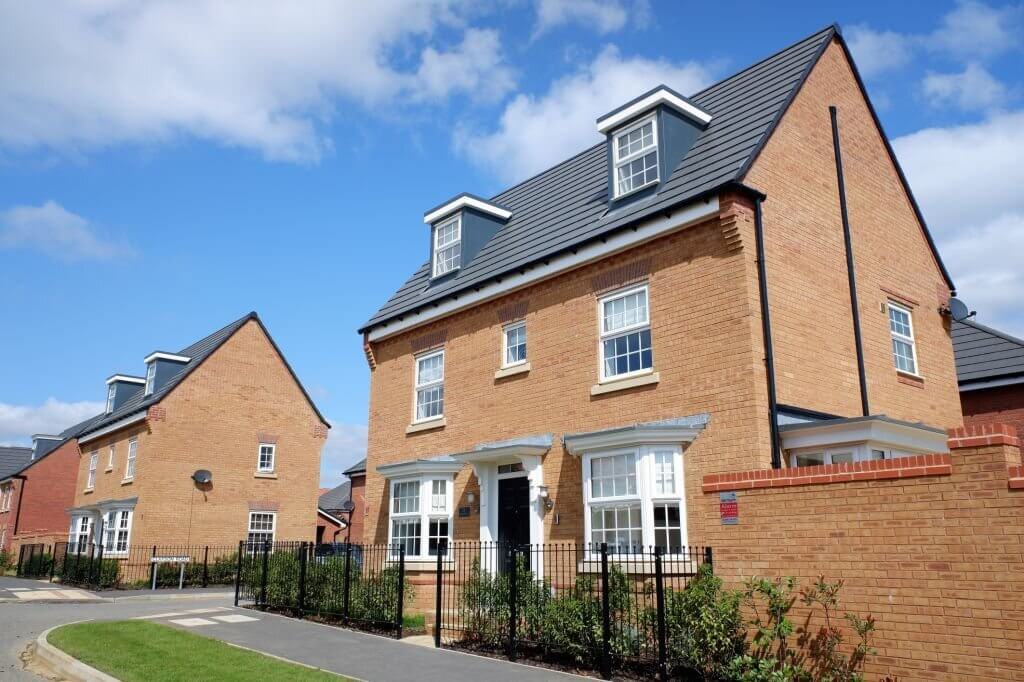
Average house price in North Dakota
North Dakota property values are considerably higher than the national median. Want to know how much your North Dakota house is worth? Search our Community Guide to find North Dakota homes for sale. Our community inquiries will keep you informed of new homes in your desired locations.
| City | Median home cost ($) |
| Grand Forks, ND | $225,300 |
| Williston, ND | $288,817 |
| Fargo, ND | $265,787 |
| Bismarck, ND | $326,515 |
| Minot, ND | $289,203 |
| West Fargo, ND | $296,717 |
| Mandan, ND | $267,003 |
| Driscoll, ND | $161,937 |
| Fairfield, ND | $632,230 |
| Walsh County (Forest River), ND | $96,865 |
| Garrison, ND | $197,037 |
| Hague, ND | $79,602 |
| Charlotte, ND | $409,327 |
| Marion, ND | $42500 |
| McVille, ND | $260,537 |
| Stanley, ND | $265,901 |
| Dickey, ND | $35,400 |
| Zeeland, ND | $32,100 |
| Portland, ND | $128,500 |
Is housing cheap in North Dakota?
The median housing value in North Dakota is $235,998 which is quite cheaper than the US which is $374,900. However, the prices have been increased by 1.4% in the last year but the best part is the housing rates have realized much more appreciation rates since the past decade.
How much does land cost in North Dakota?
With respect to the values of land in different cities of North Dakota, the average land cost in 2020 is $2063 per acre.
[elementor-template id=”13252″]
Job Market in North Dakota
The overall number of people employed in North Dakota increased by 11,355 positions, or 2.9%, from the previous year to 402,876. An increase of 5.1% in average weekly salaries over the same quarter last year was reported.

Highest paying jobs in North Dakota
Career changers desire to get into a field that pays well. This job path might lead to high pay in North Dakota. Look at the highest-paying jobs in North Dakota.
| Job | Average salary (per year) |
| Marketing manager | $52,966 |
| Electrical engineer | $57,639 |
| Pharmacist | $61,734 |
| Truck driver | $63,050 |
| Sales manager | $64,101 |
| Financial manager | $68,659 |
| Judge | $71,887 |
| Architect | $74,891 |
| Engineering manager | $77,656 |
| Veterinarians | $84,555 |
| Information systems manager | $91,160 |
| Construction manager | $93,273 |
| Physician assistant | $106,885 |
| Lawyer | $108,737 |
| Chief executive officer | $114,034 |
Unemployment rate in North Dakota
According to data collected from BISMARCK, N.D. – Job Service in 2020, North Dakota’s April non-seasonally adjusted unemployment rate was 9.2%. Between March and April, the jobless rate rose by 6.5%. The rate in April 2019 was 6.7% lower. If you’re moving to North Dakota, you’ll want to live in the greatest areas. We’ve compiled a list of the state’s ten best locations to live to help you restrict your search:
| Rank | City | Population | Unemployment Rate |
| 1 | Lincoln | 3,703 | 0.5% |
| 2 | West Fargo | 35,397 | 1.5% |
| 3 | Beulah | 3,235 | 0.9% |
| 4 | Carrington | 2,133 | 0.0% |
| 5 | Horace | 2,741 | 0.3% |
| 6 | Stanley | 2,655 | 0.9% |
| 7 | Lisbon | 2,009 | 0.4% |
| 8 | Hazen | 2,543 | 1.8% |
| 9 | Oakes | 2,129 | 2.0% |
| 10 | Rugby | 2,724 | 0.5% |
Average salary in North Dakota
The average annual salary of an individual in North Dakota is $70066, which is $5838 per month.
What are the top 5 most common jobs?
The five most common jobs that employ the highest number of individuals in North Dakota are:
- Office clerk
- Retail salesperson
- Fast-food workers
- Trailer truck drivers
- Registered nurses
Healthcare in North Dakota
North Dakotans have good health compared to the rest of the US. North Dakotans have a lower prevalence of diabetes and are less likely to report fair or poor health than other Americans. NCQA-accredited general acute care hospitals number 47 in the state Existing psychiatric facilities and Critical Access Hospitals include two Indian Health Service units. There are 38 rural hospitals in North Dakota.

Comparison of Public vs Private Healthcare in North Dakota
As private health care does not have to serve everyone, it can serve its customers far faster than public health care. However, this is both useful and life-saving. Because of insurance firms fighting for consumers and doctors, competition among insurance companies can keep premiums low and wages high. A commercial healthcare system stimulates innovation as corporations seek to reduce costs by improving healthcare delivery. The users benefit from the savings.
If you ever find yourself in need of medical attention, the following are some of North Dakota’s most reputable hospitals:
- Altru Health System, Grand Forks
- Sanford Medical Center Bismarck, Bismarck
- Sanford Medical Center Fargo, Fargo
- Ashley Medical Center, Ashley
- Cavalier County Memorial Hospital and Clinics, Langdon
Health Insurance in North Dakota
Residents of North Dakota can enroll in health insurance plans at any time, whether it’s during regular open enrollment or a special enrollment period. Medicaid and CHIP are the most common health insurance options in North Dakota. Private and public exchanges differ primarily in terms of who runs them and what regulations they must meet.
- Individual and group insurance can be sold privately. Unlike public exchanges, private exchanges can market traditional group plans to employers. These group programs may mandate a minimum contribution or participation.
- There is evidence that public insurance plans like Medicare give better treatment for less money.
- Because there are no co-pays or deductibles and administrative costs are lower than with private health insurance, public health care is unquestionably more economical.
Is healthcare free in North Dakota?
Healthcare is free for those who have acquired health insurance i.e. Medicaid in North Dakota. Medicate provides low-cost or free healthcare coverage to eligible patients.
Does North Dakota have good healthcare?
North Dakota provides good health care for which it has been ranked 27th among all the US states. While evaluating the best states for healthcare access, healthcare quality, and public health for adults and children; North Dakota is ranked 33rd, 29th, and 26th respectively.
Does North Dakota have state insurance?
North Dakota provides North Dakota Medicaid as the state’s health insurance program to help those individuals and families who don’t have any health insurance to cover the medical needs of the individual or their family. Insurance benefits are extended to disabled individuals, children up to age 21 years, parents of eligible children, pregnant women, blind, and retirees.
[elementor-template id=”13242″]
Education in North Dakota
The North Dakota public school structure is split into districts with elected school boards and superintendents. Many rural North Dakota schools are too small to offer a complete curriculum. In response to the declining school-age population, various initiatives were made in the 1990s to combine school districts and develop academic and sports cooperatives.

Most North Dakotans (approximately 90%) graduate from high school and continue their education within the state. Residents value state-funded higher education. North Dakota State University and the University of North Dakota are the state’s largest public universities. Private faith-based colleges like Trinity Bible College in Ellendale and the University of Mary in Bismarck and Fargo. Distance and online learning are being offered by public and private colleges and universities in the state. Each tribe in the state has a two-year college.
North Dakota education Ranking
In the 2019-2020 academic years, 89.0 per cent of North Dakota students graduated on time. In the breakdowns, there are gaps in on-time graduation percentages. White students graduated at 92.2%, while Native American students graduated at 72.7%.
| Type | Ranking |
| Higher Education | #16 |
| Pre-K – 12 | #34 |
| Overall ranking #25 |
Top 10 Colleges & Schools in North Dakota
North Dakota is home to top-rated schools and universities that have ranked higher than the US average in terms of performance.
Following are the top 10 schools and colleges most preferred by students and parents in North Dakota.
| Schools | Colleges |
| Wyndmere Elementary School Wyndmere Harwood Elementary School West Fargo Bell Elementary School, Minot Berthold High School, Lewis and Clark Hettinger High School, Hettinger Maple Valley High School, Maple Valley Drayton High School, Drayton Glen Ullin High School, Glen Ullin Hatton Eielson High School, Hatton Eielson Hillsboro High School, Hillsboro | University of North Dakota, Grand Forks North Dakota State University, Fargo University of Mary, Bismarck Minot State University, Minot Mayville State University, Mayville Valley City State University, Valley City Dickinson State University, Dickinson University of Jamestown, Jamestown Bismarck State College, Bismarck Trinity Bible College- Ellen Dale |
Is education free in North Dakota?
Education in public schools is exempt from tuition fees for all students of North Dakota. These schools are run by school districts and are funded by taxpayers. On average, the state spends more than $14,004 for each public school student every year.
Does North Dakota have a good education system?
North Dakota is one of the states in the US that has the best education system along with Minnesota. The schools of North Dakota have recorded an 89% graduation rate which is the highest among all the states in the US. Students consider ACT rather than SAT and earn an average ACT rank of 20.5.
How many public universities are in North Dakota?
There are 14 public universities in road north Dakota that have more than 50,000 students enrolled in various courses.
Transportation in North Dakota
According to traffic statistics, drivers in North Dakota are among the worst in the country. Over a third of the drivers surveyed said they had encountered difficulties on their way to work, especially during periods of severe snowfall. When it comes to repeat DUIs, North Dakota is the second-worst in the United States.
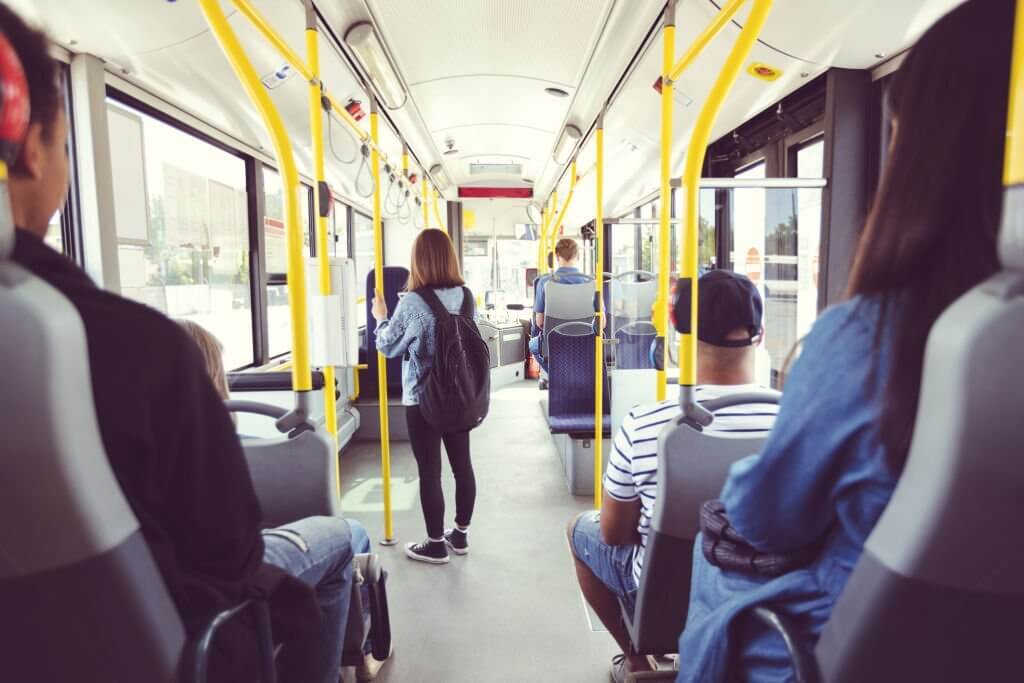
It is well-known that some roads and highways are dangerous and difficult to travel on. You should avoid these routes while relocating to North Dakota – the moving firms should be aware of these locations, but it’s a good idea to be aware!
Major Medium of Transportation in North Dakota
| Transport Type | Cost |
| Bus | $1.50 per trip or $5.00 per day pass or $36.00 for a monthly pass. |
| Car Rental | An average of $44 per day. |
| Amtrak Trains | $20 to $400 depending on the distance traveled. |
| Planes (intercity) | Average of $187.00 for one-way and $270.00 for a roundtrip. |
| Taxi | $4.20 initial fee and $1.28 per mile traveled. |
| Uber | Uber X: $2.55 initial fee and $1.75 per mile. Uber XL: $3.85 initial fee and $2.85 per mile. |
| Lyft | Lyft: Initial fee of $1.55 and $0.94 per mile. Lyft Plus: Initial fee of $2.50 and $1.46 per mile. |
| Biking | $5.00 for a day rental. |
Is there public transportation in North Dakota?
Public transit service is the only public transfer station system in North Dakota that provides transit service for 3 to 5 days a week. This affordable service is for all North Dakotans; persons with disabilities, students, the elderly, veterans, and the general public.
How much transportation fare in North Dakota?
The transportation fare structure of the public transit in North Dakota is as follows:
- One way full fare- $1.5
- One day pass- $5
- 10 ride tickets for adults- $10
- 10 right tickets for senior citizens, students, and disabled- $8
- A 31-day pass for adults- $36
- A 31-day pass for disabled senior citizens and students- $28
- Fare for children under 6 and transfers: free
How to Get a North Dakota driving license
To obtain a North Dakota driver’s license, you must be at least 16 years old. If you are under 16, you are not permitted to drive in the state, regardless of whether you hold a license from another state. North Dakota, on the other hand, allows 15-year-olds to obtain a limited license. Anyone under the age of eighteen who wishes to obtain a permit or license must have the approval of their parent or legal guardian signed to do so.

North Dakota driver’s license requirements
To start the process of receiving your North Dakota driver’s license, you will need to produce a form with your date of birth, legal presence, and proof of name. These documents must be originals, not copies. Your social security number will be examined when you apply for your permit or license. You cannot utilize out-of-state IDs, licenses, or permits to prove your identity. However, acceptable forms of identification include:
- A certificate of birth (it must be in the U.S. and certified by the state it was issued in)
- A passport is required for travel (the U.S. issued and must not be expired)
- Permits or ID cards are required in North Dakota.
- Adoption documents that provide your full legal name (must be court orders and from the U.S., and the court seal must be on the form)
- ID from the military
- A Consular Report of Abroad Birth (it must be a certificate, or have an FS240 Seal, and have been issued by the U.S. Government)
- A valid foreign passport, as well as numerous immigration documents that have not expired.
North Dakota driver’s license age
The minimum age of drivers in North Dakota is 16 years. You cannot drive if you are under 16 years of age, even if you hold a license in another state.
How much is a driver’s license in North Dakota?
The cost to get a driver’s license in North Dakota is 15. However, a driver’s license renewal also cost $15 but renewal fees are added into it along with other tests.
Can you get your license at 15 in North Dakota?
You can get a driver’s license at the age of 15 in North Dakota only if you are a permanent resident of the state. The license you get is only valid until your 16th birthday or for 12 months, whichever comes first.
Can I renew my driver’s license online in North Dakota?
The renewal system of driver’s licenses online in North Dakota is available only for North Dakota drivers. First-time applicants for renewals have to renew in person. Also if you have changed your address or have done in alternations in the earlier provided documents, then also you need to renew your driver’s license offline as they may check new original documents for verification.
[elementor-template id=”13257″]
Best Places to Live in North Dakota
- Fargo
Fargo is the happiest city in North Dakota that gives a small-town cozy feeling while providing a lot of facilities and amenities that every top city needs. Residents of Fargo are very amiable and welcoming. You will find a job immediately anywhere around the city if you are smart and chatty enough. The major downside of the city is the freezy winters and crime rate which might be stuck in the mind for some people who are considering a move here.
- West Fargo
West Fargo is one of the fastest-growing cities and is known to be the second-best place to live in North Dakota. The reason is that the city has less poverty, crime, and unemployment rates and has all the essentials to live a sorted life. The cost of living and housing prices are pretty much below average as compared to the other cities of North Dakota.
- Bismarck
The state’s capital Bismarck clearly stands in the third position as it is an ideal place to raise a family. The median home value in Bismarck is quite less than Fargo and West Fargo which is why 65% of the total population have their own homes. The city will keep you delighted and entertained with DJs, social events, and live bands on most weeknights and every weekend.
- Horace
Horace, sometimes referred to as a village or small town has a population of 2500 people only, is now officially considered as a city in North Dakota. Here 95% of residents have their own home as one can immediately get their dream home due to less population. This state is also considered as an ideal city to raise a family but the only downside is its higher median rent value which is more than Bismarck.
- Devils Lake
Devils lake is the best location for those who are searching for a rental property as the median rent price in the state is very less than in other cities. The city has a lot of outdoor recreations for those whose favorite pastime is fishing, hunting, and gambling.
- Jamestown
Jamestown is known for its biggest attraction, a massive buffalo statue that claims to be the largest buffalo sculpture across the globe. The city also hosts special functions and concerts regularly in the civic center and disc golf course. Affordable cost of living, housing prices, great weather condition, ample number of outdoor recreations, and amenities makes gemstone a cheap place having a great.
- Grand forks
With a diverse population of 55,900 people, Grand Forks lies to the east, bordering Minnesota. Affordable cost of living, varied nightlife, and great A-rated public schools encourage the appeal of grand forks. Median housing value is very similar to Fargo and waste for go where you can get a three-bedroom home with a spacious garden which is connected to the center of the city by major Highway routes.
- Lincoln
Wanna witness what real living looks like? Move to Lincoln as this city tops the list in all aspects. Lincoln starts off with a lower unemployment rate, low taxes, low crime rate, plenty of wonderful amenities, and the best living quality ranking on the out list.
Keeping the higher median housing value and rental values aside, parents mostly choose this city due to its great education system and best quality of living.
- Wahpeton
With a population of 7800 residents, Wahpeton is ranked in the list of top 10 best places to live in because it gives a great quality of life, the best public schools and healthcare facilities, affordable housing prices, and plenty of amenities for enjoyment. The weather and environment here are great and rank the state in top position in cold climates and second-ranking in air quality.
- Beulah
Home for 3239 residents, Beulah has situated an hour northwest of Bismarck. From museums, outer recreations, and community events you can find a lot of things to do in Beulah. The city has the lowest crime rate, poverty rate, unemployment rate and has affordable housing and rental values. If you were searching for a big town in a small city, Beulah is the right choice for you.
Culture & Climate in North Dakota
North Dakota has traditionally been a frontier state. A late settler, it is one of the least frequented states by visitors. Native Americans have revered this gorgeous prairie area for millennia, and their culture is still very much alive in the state. Nature defines the culture, and the few towns, like things to do in Fargo and Bismarck, offer a glimpse into this distant corner of the country.

Culture
North Dakota is a huge unpopulated state that hasn’t altered much since the early 1900s when German and Scandinavian immigrants arrived. Agriculture, mining, food processing, and tourism are the state’s main industries. A fresh oil and gas find has rekindled the state’s boom, luring new citizens eager to make a life in Williston.
What are some traditions in North Dakota?
The 10 simple, unusual and crazy traditions that you need to know if you are probably relocating to North Dakota and going to be a resident of the state are as follows:
- Arranging a bonfire anytime for any reason.
- Bringing hot food to every single event, get-together, or party.
- Rooting for neighboring state’s sports teams.
- Standing outside to watch the storm coming in.
- Eating your favorite North Dakota dessert- kuchen anytime, anywhere.
- Make sure to have no school or work during the opening days of hunting season.
- Accepting North Dakotan’s favorite dish- lutefisk on special occasions.
- Go for ice fishing on hauling trucks in cold places of North Dakota.
- Enjoying pumpkin patches and corn measures during fall.
- Heading out for state or country fairs during summers.
Climate
Summers in North Dakota are hot, with average high temperatures ranging from 77°F (25°C) to 87°F (30.6°C) in July. From 10 to 24 days in the northeast to 90°F (32.2°C) in the south. A few days exceeding 100°F (37.8°C) in the southwest and south-central. Winters are harsh, with heavy snowfall in North Dakota. Statewide, temperatures average 40-70 days below 0°F (-17.8°C). In years with no snow, temperatures range from 40°F (4.4°C) to 60°F (15.6°C). During the winter, dry and cold air masses cause considerable daily temperature changes. Spring and fall are warm, with the possibility of frontal air incursions and heavy winds.
North Dakota’s yearly precipitation ranges from 14″ (356mm) to 22″ (559mm). A dry winter follows a rainy late spring and summer. Snowfall in North Dakota dominates the winter and averages 51″ (1295mm) each year. Snowfall is common in all months except July and August. During July, there are 354 hours of sunlight on average. The monthly humidity ranges from 60% to 75% during the cold season.
How snow does it get in North Dakota in the winter?
North Dakota experiences bad winters for 3 to 4 months every year. The average annual snowfall in the central part of North Dakota ranges from 66 cm to 96.5 cm in the Northwest and Southwest. The state has also experienced a miserable fall in temperature around minus 60 degrees Fahrenheit during the winters.
What is the average climate in North Dakota?
North Dakota’s average climate has a distinctive continental weather condition with warm summers and cold winters. The annual average temperature inches from 35 degrees Fahrenheit in the north to 43 degrees Fahrenheit in the south of the state.
North Dakota State Ranking
According to a U.S. News and World Report assessment, North Dakota has the highest overall quality of life in the country. U.S. News & World Report examined seven aspects of everyday living and limited the list of the best states in the United States.
This covers health care, education, the economy, opportunities, infrastructure, economic stability, and the overall quality of life in the United States of America. All things considered, North Dakota came in at number #14 overall rank.
| Category | Rank |
| Health Care | #27 |
| Education | #25 |
| Economy | #32 |
| Infrastructure | #4 |
| Opportunity | #23 |
| Fiscal Stability | #16 |
| Crime & Corrections | #18 |
| Natural Environment | #8 |
Conclusion
If you quest if North Dakota is a good place to live? North Dakota is a wonderful area to live and raise a family, especially if you have children. It has been regarded as the best state in the country for quality of life. Regardless of where you arrive in North Dakota, you will be met by friendly neighbors and inviting towns no matter where you go.
If you are now thinking about it, should you move to North Dakota or not! Consider living in a small town away from the hustle and bustle of our larger cities; a bedroom community with small-town charm and easy access to the amenities of our larger urban centers; or a location right downtown where you can take advantage of all the culture and nightlife our cities have to offer. Choose your lifestyle.
[elementor-template id=”11713″]
